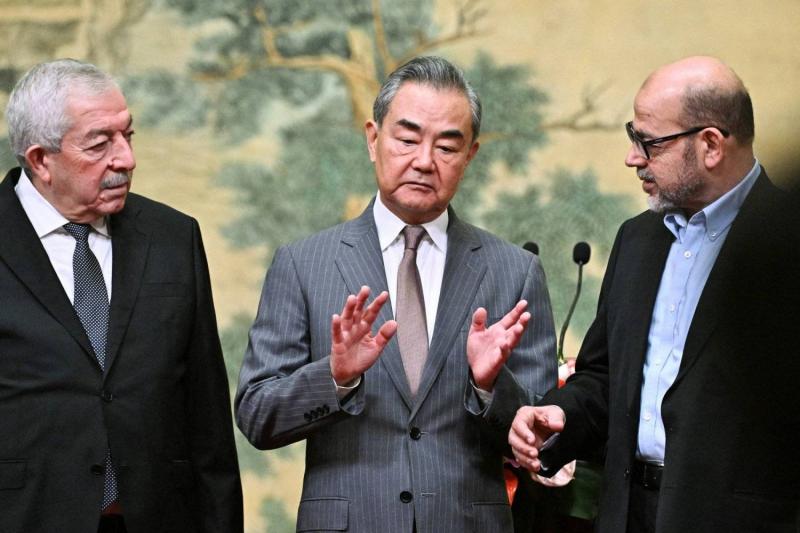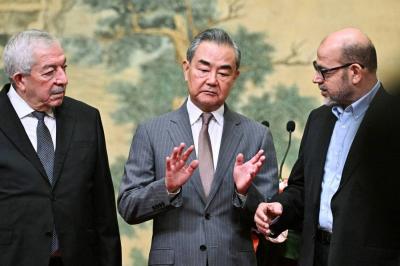One of the most sorrowful issues for those concerned with the Arab-Israeli conflict is the severe division within the Palestinian body itself, particularly between the two dominant forces shaping Palestinian society, "Fatah" and "Hamas," regardless of my personal stance on Hamas and its calculations and orientations. Over the past years, there have been ongoing attempts from regional and global powers to achieve reconciliation among Palestinian factions, where Palestinian delegations gather in various capitals and cities around the world, sitting together, discussing, enjoying drinks, presenting papers, and taking commemorative photos. However, what is in the heart remains in the heart, as the division reappears at the first test.
Recently, the Chinese capital, Beijing, announced that it would be a new arena for achieving Palestinian-Palestinian reconciliation, confirming an agreement reached among 14 Palestinian factions to form a "temporary national reconciliation government" to manage the Gaza Strip after the war. This announcement came at the conclusion of a meeting hosted by Beijing, which witnessed the signing of a "national unity" agreement between Hamas, Fatah, and other factions.
The history of division between Hamas and Fatah dates back to 2007 when Hamas took control of Gaza after violent clashes with Fatah, which was expelled from the territory. Since then, there has been little progress towards reconciliation, despite numerous failed attempts. Additionally, internal conflicts, regional and international pressures, and Israeli rejection have created numerous obstacles to the implementation of any new agreement.
Some sources have confirmed that the issue of governing Gaza after the war was a major point of contention among the Palestinian parties, something that was expected given Hamas's dominance of power and influence in the Strip, leading to the current situation. Moreover, there is a desire among international parties to find a formula for agreement among the factions to manage the sector during this critical phase, particularly regarding reconstruction efforts that will require substantial efforts from the Palestinians themselves, as well as from donor countries and parties.
Therefore, it is essential to understand that reconciliation is not merely a matter of signed agreements but rather a significant and ongoing process requiring genuine commitment from all parties to achieve common goals. The desire of Palestinian factions for national unity is commendable, but it requires practical guarantees and effective implementation mechanisms.
While Beijing may have succeeded in gathering Palestinian factions around the negotiating table, true success depends on the seriousness of the parties in implementing agreements and achieving lasting reconciliation. This step may seem positive on the surface, as Hamas leaders emphasize the importance of national unity as the ideal solution to the current Palestinian situation. However, past experiences lead us to question: Will this time succeed in achieving genuine and tangible reconciliation, or will it remain merely another addition to the list of failed attempts?




